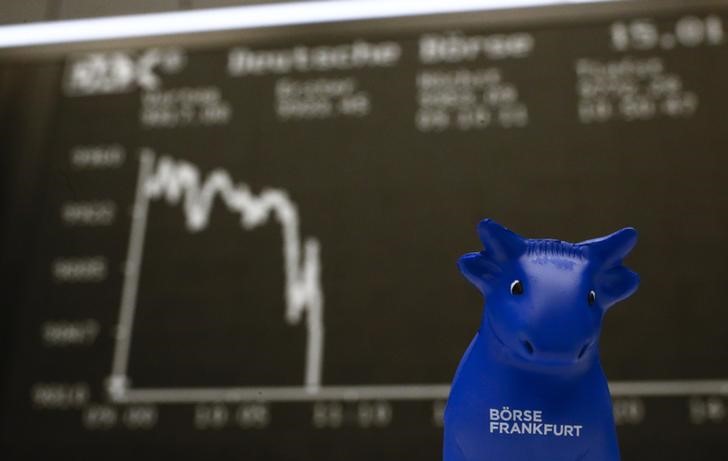By Peter Nurse
Investing.com - European stock markets are expected to open sharply lower Monday, as investors fret over the economic risks facing the region, including potential energy shortages, slowing growth, and soaring inflation.
At 02:00 ET (06:00 GMT), the DAX futures contract in Germany traded 3.3% lower, CAC 40 futures in France dropped 0.5%, and the FTSE 100 futures contract in the U.K. fell 0.1%.
Russia announced over the weekend that one of its main supply pipelines to Europe would remain shut indefinitely, scrapping a Saturday deadline for gas flows down the Nord Stream pipeline to resume, citing an oil leak in a turbine.
The Nord Stream pipeline was already running at just 20% of capacity before flows were halted last week for maintenance. This move will likely push up already sky-high gas prices, and spark fears of energy rationing in Europe as winter approaches.
The soaring energy prices can only add to inflation, which is already at record highs in the Eurozone and fast approaching double digits.
This is putting pressure on the European Central Bank to act, and the policymakers are set to respond on Thursday with a second, large interest-rate hike, tightening before economic conditions deteriorate further.
That said, economic data due for release later in the sector is expected to show that economic activity in the Eurozone contracted further in August, with the S&P Global Composite PMI index seen falling to 49.2 from 49.9.
Retail sales in the region could grow 0.4% on the month in July, but this only represents a small rebound from the 1.2% fall the previous month. The year-on-year release is expected to fall 0.7% in July.
There was some good news overnight, as Chinese service sector activity expanded more than expected in August, with the Caixin services purchasing managers index coming in at 55, ahead of the expected 54 reading.
Elsewhere, Foreign Minister Liz Truss is widely expected to be named the new U.K. prime minister later Monday, and she will have her hands full immediately with the county facing a cost of living crisis, industrial unrest, and a prolonged recession.
Oil prices jumped higher Monday ahead of a meeting of top producers, with traders reacting to the possibility of a cut in output to support the market.
The Organization of the Petroleum Exporting Countries and allies, a group known as OPEC+, meets later Monday, and is largely expected to keep current output levels despite supplies remaining tight.
However, Saudi Arabia, the de facto leader of the group, recently floated the idea of cutting production levels to support prices, and this potential is supporting the market.
Oil prices have fallen in the past three months, after touching multi-year highs in March, on concerns that interest rate hikes and COVID-19 curbs in parts of China, the world's top crude importer, may slow global economic growth and cool oil demand.
By 02:00 ET, U.S. crude futures traded 1.9% higher at $88.55 a barrel, while the Brent contract rose 2.2% to $95.03.
Additionally, gold futures rose 0.1% to $1,724.10/oz, while EUR/USD traded 0.6% lower at 0.9887.
